“It must be as if the study had never happened,” said French MEP Corinne Lepage, who also challenged EU science adviser Anne Glover over her conflicts of interest with industry.
Below are two reports from the press conference at the European Parliament called by Prof GE Séralini after the retraction of his study on GM maize and Roundup by the editor of Food and Chemical Toxicology, Dr A. Wallace Hayes.
Item 1 is an excerpt from the speech by the Member of the European Parliament and former French minister for the environment, Corinne Lepage. Lepage states that the aim of the lobbyists’ bullying of Hayes to retract the study is to shut down forever the very notion of long-term studies on GMOs.
Prof Séralini states in his book, Tous Cobayes (Flammarion, 2012), that if GMO companies were forced to conduct long-term tests on GMOs, they would not be financially viable.
We conclude that there is a lot at stake in ensuring that such long-term tests are never required. What better way than to erase from the record an experiment that showed that the long-term health effects of GMOs can ONLY be seen in a long-term study?
The fact that long-term effects require long-term studies may seem obvious, but it’s apparently beyond the comprehension of GMO regulators worldwide, none of whom require tests of longer than 90 days in rats (about 7 years in human terms). It’s a case of “don’t look, don’t see”.
Item 2 is an article on the press conference from the French press. Please note that Mme Lepage is quoted in this article as saying that the EU chief scientist Anne Glover formerly worked for Monsanto. This is a mistake, for which Mme Lepage has apologised. However, Mme Lepage’s chief of staff Francois Damerval followed up by asking Glover to publish her declaration of interests, which she did.
According to Glover’s declaration, as reported by Damerval, she is a shareholder in a small biotech company (its name and details of patents owned and sold are still unknown). She sits on the board of a learned society, Science Business, alongside representatives of Microsoft, Sanofi and BP; members include biotechnology companies.
http://blogs.mediapart.fr/
Damerval writes, “All this would not matter if Ms. Glover had not taken since her appointment an extremely partisan position in favour of GMOs, and especially if she did not hold public office. But the Commission is responsible for ensuring the general interest of Europeans and not the special interest of companies producing GMOs. This situation is particularly serious because the free trade agreement with the United States led by the Barroso Commission has as its stated objective the reduction, and, if possible, the elimination of regulations put in place in Europe to ensure food safety for Europeans — as well as the mass dissemination of GMOs.”
Damerval adds that Glover’s PR “offensives” promoting GMOs and the principle of “innovation” are “not neutral”.
Four appeals from Corinne Lepage
Press conference called by Prof GE Seralini at the European Parliament, 28 November 2013
https://www.youtube.com/watch?v=4VSqeKd7M9k&feature=youtu.be
[English translation from French transcript by Claire Robinson of GMWatch]
“A few concluding words. Before we go to questions, I think you understand that this issue of the retraction of the study by Gilles-Eric Séralini goes far beyond the question of the study itself. What they want is in fact to close a door that we had opened slightly, allowing for long-term studies on the impact of pesticides and GMOs on human health. The study by Gilles-Eric Séralini should not have happened. But it did happen. Now it must be as if it had never happened! And I draw your attention to the fact that, although a willingness was expressed by health organizations to launch similar studies, starting with ANSES, which recognized the absolute necessity [for such a study], nothing has yet been concretely launched.
This means that we will not have results for three or four years, even assuming that studies will be started now. Which brings me back to what I was saying earlier about the pressure that is exerted on the current European leaders. I am thinking about Mr Barroso and his team, who are absolutely ready to listen to the U.S. siren-calls for a free trade agreement, to the eventual cost of the health and food supply of European consumers.
So I ask four things:
– First, I call to action all scientists worthy of the name, just as professor [Paul] Deheuvels did earlier. He simply wants the progress of knowledge. [Scientists should] mobilise against the current consolidation in scientific publishing and for an end to the control exercised by the lobbies – and Mr [Richard E.] Goodman is an excellent example – on what can or cannot be published. Global knowledge and the advancement of science are at stake.
– Second, I appeal to all consumer organizations and European citizens to mobilize to show their opposition to the takeover of their health and diet by lobbies.
– I call for an end to what in reality are no longer merely conflicts of interest – but are the occupation of posts of responsibility by persons from lobbies in defence of their interests… And I am thinking first and in particular of Ms. [EU chief scientist Anne] Glover and a number of people at EFSA.
– Finally, I appeal to the Council to finally reach a position on the vote of the first reading, which was adopted by the European Parliament in 2011 and which would at least allow European states to not legally cultivate GMOs on their territory if they so wish, and to require comprehensive studies to be carried out. It is vital that this text appears before the free trade agreements are concluded (not that I want them to be). Thank you. We are at your disposal for questions…”
GMOs: Accusations of lobbyists’ influence in Brussels
Christian SPILLMANN
AFP, 28 Nov 2013
http://fr.news.yahoo.com/ogm-linfluence-groupes-pression- accusation-%C3%A0-bruxelles- 172345738.html
[English translation from the French by Claire Robinson of GMWatch]
The attempt to “disappear” a critical and controversial study on a GMO commercialized in the EU demonstrates the growing influence of lobbyists on processes of expertise and is “a threat to food safety”, a group of elected European representatives and scientists charged in Brussels on Thursday.
“Today I want to sound an alarm call against the takeover of the lobbies. This is extremely worrying for our society,” announced the French Liberal MEP Corinne Lepage, former Minister of the Environment, during a press conference at the European Parliament.
Lepage was alarmed by the decision of the scientific journal Food and Chemical Toxicology to retract the controversial study of French Professor Gilles-Eric Séralini, which demonstrated the toxicity of GM maize NK603, developed by the U.S. company Monsanto.
The journal had published the study by the French researcher in November 2012 and at the time, FCT had fiercely defended its decision to publish.
But on 19 November, the editor of FCT, A. Wallace Hayes, backtracked. While admitting he found no evidence of fraud in the study, he announced that the article will soon be “withdrawn from the publication”.
Present at the press conference along with other scientists and representatives of civil society organizations, Mr. Séralini does not intend to let the matter drop.
The decision of the editor of FCT “aims to complete the process of discrediting” the study, charged Ms. Lepage.
This amounts in effect to erasing the existence of this study, which can no longer be taken as a reference for risk assessment when considering applications for authorization of GMOs for food and especially for cultivation in the EU.
The decision of the journal follows the “arrival on the editorial board of Richard Goodman, a biologist who worked for several years at Monsanto,” said Mr. Séralini.
There have already been precedents. A study on another GMO conducted by a team of Brazilian researchers has simply not been published [by FCT], said the French researcher. [GMW: In fact it was published by FCT but immediately retracted and then published by another journal]
“Séralini’s study is a pioneering experiment and needs to be confirmed,” pleaded Paul Deheuvels, member of the Academy of Sciences.
The intervention by the lobbies aims to avoid that, said Corinne Lepage. “They want to close the door to long-term studies,” she complained.
Authorization of new GMOs
The elected member of the European Parliament [Lepage] called for scientists to take action to end the pressure on journals. She also called for the departure of people with links to lobbies employed by the European Commission and the European Food Safety Authority (EFSA), which is responsible for the risk assessment of GMOs.
Corinne Lepage cited by name Anne Glover, “formerly of Monsanto”, [GMW: See correction in our commentary above — Glover has not worked for Monsanto but has other conflicts of interest] who was engaged as EU Scientific Advisor by the President of the European Commission José Manuel Barroso, and whom Lepage accused of “making regular pro-GMO statements”.
The process of risk assessment of GMOs conducted by EFSA has for years been under fire from critics in the European Parliament. But member states refuse to intervene.
Corporate Europe Observatory (CEO), an NGO based in Brussels, demonstrated in a study that 59% of members of EFSA working groups have conflicts of interest with industry.
The result is a “very weak risk assessment in the EU,” said Nina Holland of CEO.
The European Commission and EFSA reject these accusations.
But European institutions have the greatest difficulty in regulating the activities of lobbyists.
A register has been instituted, but registration is done on a voluntary basis and groups like Monsanto refuse to cooperate.
The press conference organised on Thursday by Corinne Lepage comes as EU Member States must decide in the coming weeks on a new application for authorization to cultivate a GM maize found safe by EFSA.
A Monsanto representative responded by saying that the study by Professor Séralini was condemned a year ago for its lack of credibility.





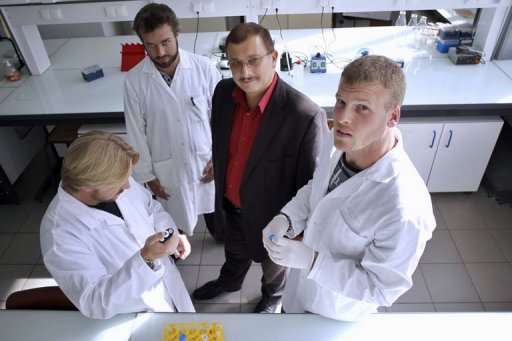



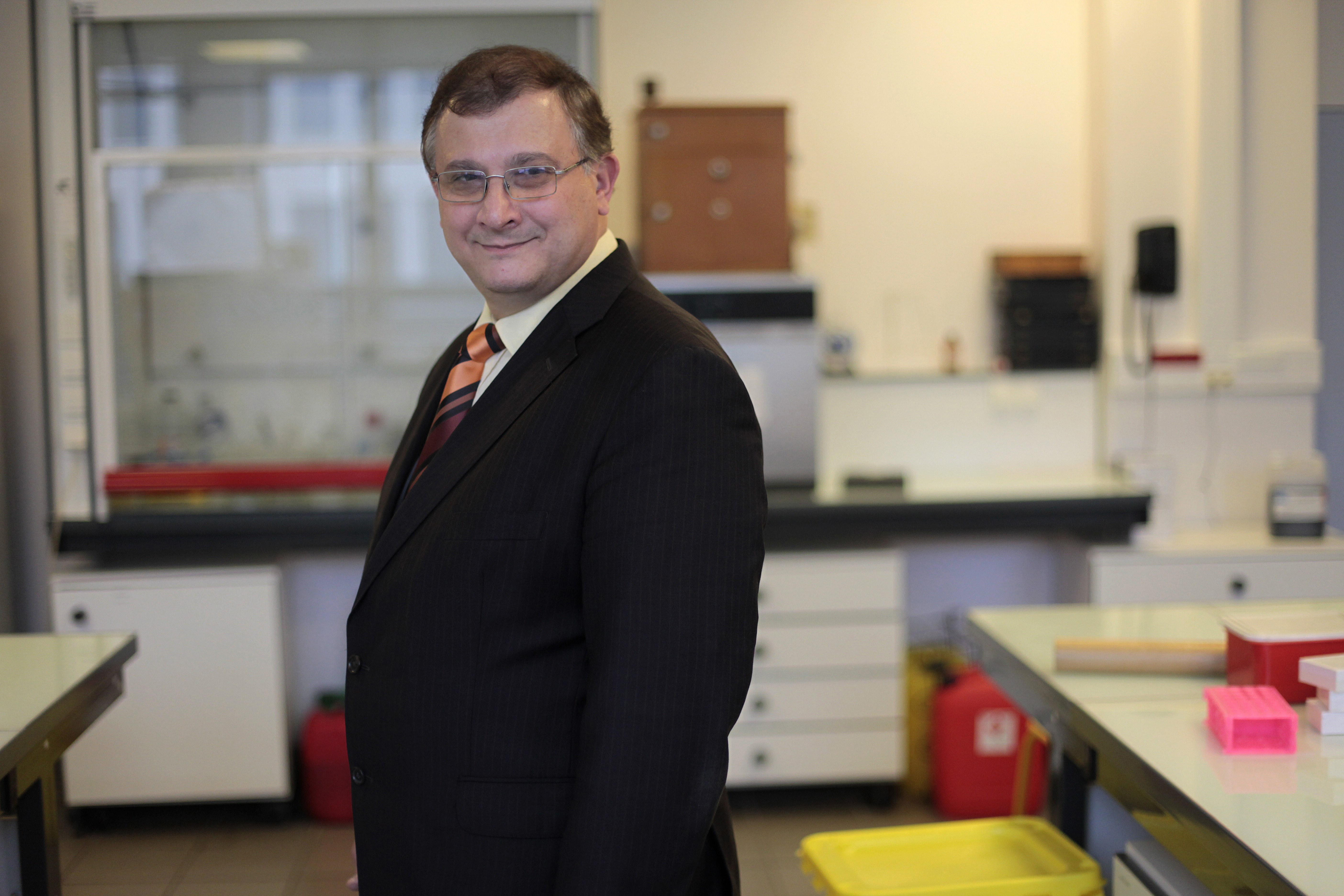
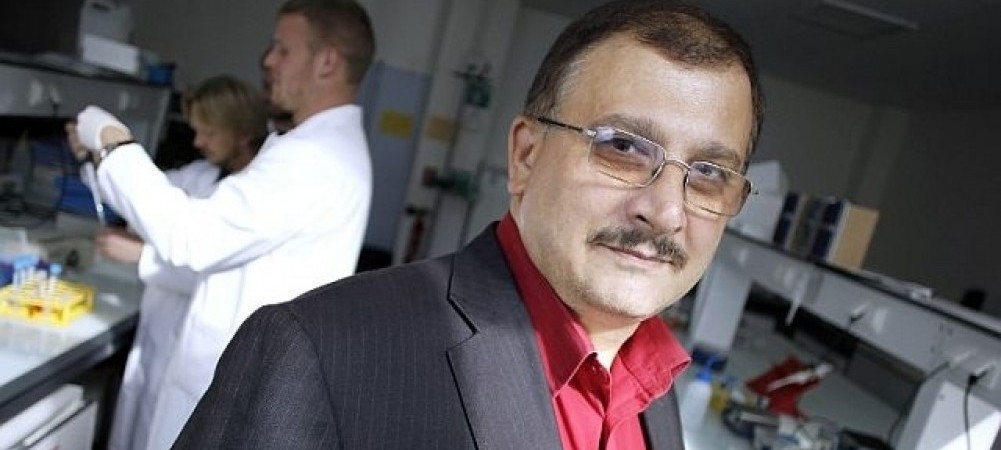

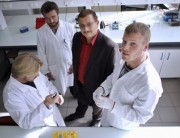
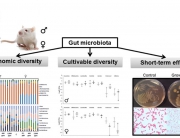






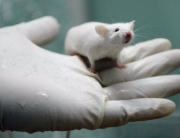
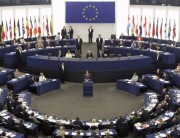


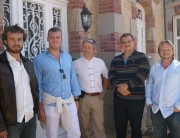
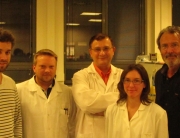


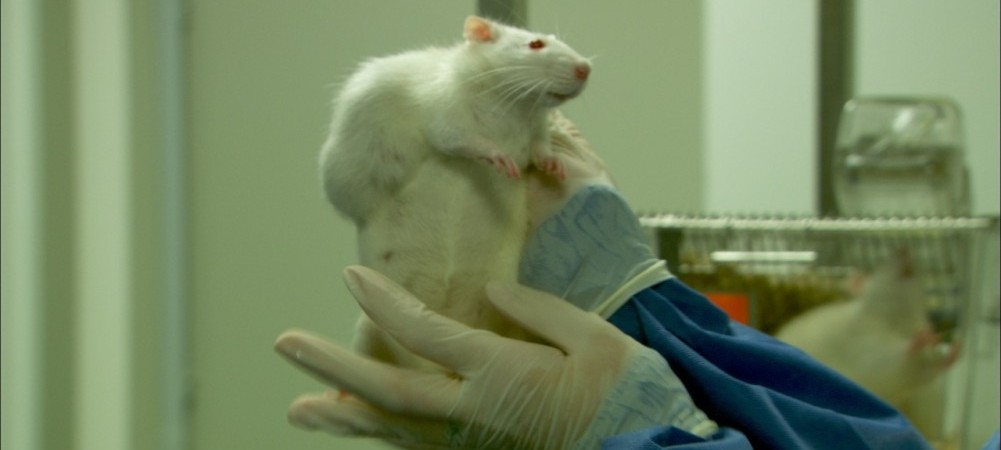


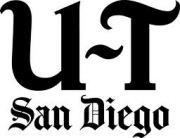
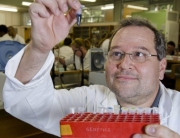
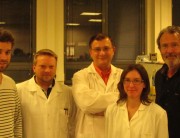

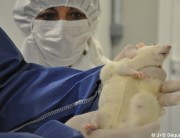






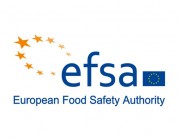


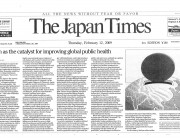































Please remember that the GMO Industry is just another Midwestern American fundamentalist religion. .
America Agriculture is likewise an American fundamentalist religion in which the false god is quite simply Corporate America.
Surely the door is open wide for new independently publishers and journals, who can declare that they have no conflicts, and are not funded by advertising. As many people are now aware that practically ALL the publishers and journals are pretty much “owned” by industry – and so cannot be trusted to portray the truth if that happens to be financially damaging to their corporate affiliates. Hopefully in the future, these conflicted dinosaurs will become extinct as people find out more.
No one can yet say that current genetic engineering paradigms involving trans-gene expression, are definitely safe.“Classically, the state of least excitation of a field is a state in which the field is zero everywhere, and thus a state of complete inertia. However, the uncertainty principle [δϕ δΠ ≥ ℏ/2] implies that such a state of precisely determined field amplitude (ϕ = δϕ = 0) corresponds to a completely indefinite rate-of-change of the field (δΠ = ∞) and hence a state of infinite energy density (Hagelin, 1989).”
“The transition from the classical to the quantum mechanical description formally begins with the imposition of the canonical commutation relation
[ϕ , Π] = iℏ]
between the field ϕ and its canonical conjugate momentum Π.” This leads to physics solutions based on “the fundamental importance of sequence in this quantum mechanical algebra (Hagelin, 1989).” Knowing the laws of electro-weak [≈10^-16cm] and grand unification physics, and the math of super unification, could possibly give fundamental requirements and solutions in sequence, and rotations, which express at the more delicate superficial distance level of chemistry [≈10^-8cm] used in genetic engineering.
We will see the greater destructive potential when going from chemistry, [≈10^-8 cm], to say for example, electro-weak unification [≈10^-16]. These deeper laws may desynchronize [and disintegrate] molecular structures created by laws at more superficial distances.
Even at the relatively superficial level of chemistry the trans-gene expression of bacterial enzyme ESPS in NK 603 corn, could have a subtle structural change like glycosylation (extra sugar reside). Then the enzyme ESPS, with a very slight difference in structure, may act as a catalyst which determines a precisely different outcome. A glycosylated ESPS catalyst could lower activation energies at “the junction point between two phases- a delocalized, coherent transition state, which follows quantum-mechanical laws (Maharishi Mahesh Yogi 1996).” This could could efficiently and smoothly drive a precisely directed and synchronized growth of tumors as occurred in the rats of Seralini’s landmark study.
Even worse for biotech, at ≈10^-16 cm, “the unified electro-weak theory established the importance of so called “unified non-Abelian guage theories” and the principle of spontaneously broken symmetry, which locates deep symmetries of nature at fundamental space-time scales. An important property of non-Abelian guage theories is self-interaction or self-referral. The electromagnetic field [10^-8 cm] by itself does not possess this property: protons do not interact with protons (Wallace, 1987).” Is genetic engineering currently calculating the required “principle of spontaneously broken symmetry?” Probably not!
What is the danger when the biotech corporations are ignoring laws of physics at smaller distance scales? Dynamism and therefore destructive potential is inversely proportional to distance. Dynamism increases at smaller distances.
“The dynamism [δϕ δ Π > or = ℏ/2] implied by the quantum principle increases at more fundamental spacetime scales. This accounts for the fact that the nuclear transformations at distance scales ≈ 10^-13 cm are far more powerful than chemical transactions occurring at ≈ 10^-8 cm. At scales characteristic of the unified field, the Planck scale of 10^-33 cm or 10^-43 sec, the intrinsic dynamism of the field is nearly infinite—on the order of 10^100 ergs per cubic centimeter—much greater than the mass-energy of the known universe (Hagelin, 1989).”
Thus mother nature may probably destroy the current bio-tech sloppily genetically engineered food creations, which are not following deeper required laws of physics regarding sequence and rotations, for example.
The chaos created by biotech corporations is illustrated by the impending extinction of the monarch butterfly in America. The monarch is systematically [“Even perfect disorder can be quantified mathematically (Theory of Random Processes)(Maharishi Mahesh Yogi 1996) ] being driven into extinction by the USDA’s cooperation with bio-tech corporations who are destroying the monarch’s milkweed plant in Midwest America with herbicides.
In the mean time, scientists like Dr. Seralini, PhD. are aligned with physics and with the Entropy journal group. Because of the uncertainty principle, and subsequent ambiguities in measurement outcomes (ignored by at least some of the relevant biotech corporations), high school students will notice that Dr. Seralini uses a lot of physics protocols for safety, which many American universities, need to adopt. For example, Dr. Seralini uses the mainstream physics techniques like mass spectrometry used in chronic toxicology studies, and multivariate analysis, principal component analysis (PCA), partial least- squares to latent structures (PLS), and orthogonal PLS (OPLS).
The Chinese military and Russia have very intelligently banned bio-tech genetically engineered food (Roseboro 2014), apparently because so many peer reviewed studies in toxicology journals, using state of the art scientific technologies such as mass spectrometry, to precisely identify bio-tech toxins, indicate unlabeled genetically engineered food in the US food supply is very unsafe.
Internationally this represents a strategic military and economic advantage for China and Russia because President Obama, being misled by the scientists in the USDA, FDA, and EPA, is essentially working directly for the greedy multi-national biotech corporations, and disregarding normal safety protocols and information in toxicology journals.
For example, any one can go to Walmart and buy a bottle of Roundup Ready. Not listed as toxic on these Roundup Ready bottles is the inactive ingredient, the adjuvant or carrier, POE-15, which carries the herbicide glyphosate through the plant or human cell walls. Using the precise and universally reliable mass spectrometry technology, POE-15 was found to be 10,000 times more toxic than glyphosate to human cells (Mesnage 2012). Also not listed as toxic is the active ingredient glyphosate. A physics journal Entropy has reviewed 286 research studies finding glyphosate is connected to many human diseases, including certain pediatric illnesses prevalent in America (Entropy 2013). Some of these like pediatric autism may show a time-lag (causal) correlation from the unlabeled introduction of glyphosate into the American diet. Isn’t any lack of danger warnings on the Roundup Ready bottles illegal?
US university biotech scientists who get research funding from the biotech multinationals unethically and unintelligently claim the toxicology journals are simply untrue and have even gone so far as to retract Dr. Seralini’s legitimate toxicity pilot study on NK 603 and glyphosate [which has been republished by more ethical journal editors]. These unscrupulous US scientists retained the journal studies using the nearly same experimental designs, but only if they report positive findings. The lead biotech scientists are becoming millionaires from their personal copyright patents on biotech toxins which lawyers, not independently funded research competent scientists, are rubber stamping in US courts.
China was number one in PISA math/science scores, 2010. The US has plummeted from 18th in 2003, to 30th and 23rd by 2010 (Dillon 2010). Is it partly because US students are eating so may unlabeled biotech toxins?
Chinese generals believe that many Chinese pediatric illnesses as reviewed in the Entropy article (Entropy 2013) are caused by the import of genetically engineered food from America. These Chinese generals want all biotech toxins eliminated from the diet of the Chinese people, within 2 years (Roseboro 2014).
The White House needs to do its math/science homework!
The corporate biotech lead scientists, who are making so much money on their biotech toxin copyrights should be required to perform lie detector tests combined with EEG [brain] coherence tests (Travis 2009) [which combined may help pinpoint the weak point: lying and/or low intelligence and low ethical and moral reasoning scores]. Also longitudinal intelligence tests may reveal if indeed the scientists who are preaching to eat biotech toxins, while blatantly ignoring toxicology journal research, may be eating too much of their own copyright POE-15, and subsequently they may be suffering collapsed intelligence scores? Someone needs to help these poor unfortunate scientists.
In the mean time intelligent US students who want to use state of the art scientific and physics protocols to investigate the truth about biotech side effects can simply enroll in universities, like the University of Caen, outside of the US where truth is not censored by US university faculty funded by biotech corporations. The University of Caen is on the Normandy beach, where historically truth alone triumphed, when the Allies invaded and defeated the Nazis.
Will M. Davis
References:
1. Dillon, T. (2010) Top Test Scores From Shanghai Stun Educators, Education Section, New York Times December 7, Pp. A1 of New York Edition.
2. Entropy 2013, 15(4), 1416-1463; doi:10.3390/e15041416 Review2. Reprod Toxicol. 2011 May;31(4):528-33. doi: 10.1016/j.reprotox.2011.02.004. Epub 2011 Feb 18
3. Mesnage, R., Bernay, B.,, Seralini, G.-E., adjuvants of glyphosate-based herbicides are active principles of human cell toxicity, Toxicology. 2013 Nov 16;313(2-3):122-8. doi: 10.1016/j.tox.2012.09.006. Epub 2012 Sep 21.
4. Hagelin, J., (1989) Restructuring Physics From Its Foundation In Light OF Maharishi’s Vedic Science, Modern Science and Vedic Science, vol. 3, no. 1, , Pp. 3-72.
5. Maharishi Mahesh Yogi (1996) Maharishi’s Absolute Theory of Defence, Sovereignty in Invincibility, Age of Enlightenment Publications, 1996.
6. Roseboro, K. (June 2014) Chinese army bans GMO grains and oils from supply stations, The Organic & Non-GMO Report, Issue # 144, Pp 26.
7. Travis, F., (2009) Brain Functioning as the Ground for Spiritual Experiences and Ethical Behavior FBI Law Enforcement Bulletin, 78(5), Pp. 26-32.
8. Wallace, R. K. (1987) The Maharishi Technology of The Unified Field: The Neurophysiology of Enlightenment, Maharishi International University Press, Fairfield, IA.
If we were to assume the bio-tech scientists are right and their genetically engineered food is safe, then they will fully support a nation wide hospital project in the United States, funded by the NIH, in which copyright bio-tech toxins are counted and labeled in human blood samples, including human fetal blood samples. Advanced digital PCR technologies which incorporate the principle of absolute quantitative analysis [in principle this is taught to fourth grade education students: separate balls and blocks, label, and count] needs to be used to identify and count bio-tech toxins. Also the hospital testing needs to include mass spectrometry identification of any variants of trans-gene expressed bacterial proteins and enzymes (such as unanticipated glycosylation- extra sugar residues; and phosphorylation- the addition of a phosphate (PO43−) group to a protein), which can be more toxic than the non-variant versions of trans-gene expressed enzymes and proteins . Then a data base will be established in case any of these as yet “hospital unmeasured molecules” may be co-morbidity variables with either disease factors such as influenza; or with some pharmaceutical molecules.
As in the case of surgery, care is taken to prescribe the pain killers which will not interact with any patient’s pharmaceutical regime. Another example is any two pharmaceuticals alone may be relatively safe, but in some cases a combination of two other wise safe pharmaceuticals will be lethal. Are any bio-toxins interacting with any pharmaceuticals in a dangerous way?
Getting back to the algebra related to “the imposition of the canonical commutation relation
[ϕ , Π] = iℏ]
between the field ϕ and its canonical conjugate momentum Π (Hagelin 1989).”
“If the commutator [ϕ , Π] = iℏ] were to vanish, e.g. in the classical limit as ℏ > 0, all dynamical evolution would cease. Thus the entire dynamics of of the quantum theory has its ultimate origin in the dynamical relationship between ϕ and Π imposed in the relation [ϕ , Π] = iℏ] (Hagelin 1989)”.
What is the probability the monarch butterfly will vanish with the new 2,4-D corn and soy being implemented by the USDA? It is virtually certain that the drifting of 2,4-D will eliminate enough of the remaining 10% of the original milkweed population in the American Midwest (approximately 90 % has been destroyed by glyphosate and habitat destruction of milkweed by genetically engineered crops)(Brower 2011). Implementing 2,4-D aerial spraying will make the probability, p = 1, that it is virtually certain the USDA will orchestrate the elimination of enough of the remaining milkweed, to subsequently exterminate the American icon, the monarch butterfly.
In a similar fashion what is the probability the American fetus will suffer too much DNA mutations resulting in mortality or disease, from biotech Bt-toxins, glycosylated Bt-toxins, phosphorylated Bt-toxins, POE-15, glyphosate, 2,4-D, etc? Only by measuring the blood in all US hospitals for all human fetuses, and for all children and all adults, can it be determined if the bio-tech toxins are safe as the bio-tech scientists claim. So obviously they will support confirmation of their claim that they are safe by the implementation of such a mandated nationwide hospital safety protocol, immediately.
Let’s focus first on measuring adjuvants, like POE-15, in human fetal blood in all US hospitals. Already, Toxicology, published in 2012, that POE-15 is 10,000 times more toxic on human cells than glyphosate. Test were performed on hepatic (HepG2), embryonic (HEK293) and placental (JEG3) cells. “POE-15 clearly appears to be the most toxic principle against human cells…It begins to be active with negative dose-dependent effects on cellular respiration and membrane integrity between 1 and 3 ppm, at environmental/occupational doses. We demonstrate in addition that POE-15 induces necrosis [premature death] when its first micellization process occurs, by contrast to glyphosate which is known to promote endocrine disrupting effects after entering cells (Mesnage 2012).”
Dr. Jim Yong Kim, MD, President of the World Bank has indicated in the 2010 Lancet Burden of Disease Report, that co-morbidity variables need to be identified as for example in pediatric influenza mortality’s, lethal pharmaceutical combinations, or any variables such as bio-tech toxins.
If the bio-tech scientists are wrong, they can be forgiven, but any proven bio-toxins which are causing fetal DNA mutations will be eliminated immediately (extracted from the food supply]. Actually by the precautionary principle, favored more by Europe than in the less cautious America, all the bio-tech toxins should be pulled now, because the proposed safety research which would have confirmed the safety of these questionable bio-tech toxins, has never been done.
The time dependent Schrodinger equation:
H [Ψ > = iℏ]Ψ* >
which governs the time evolution of of the quantum-mechanical system exemplifies unitary transformations.
“It takes a quantum-mechanical system, which is represented by a specific vector [Ψ> in Hilbert space, and transforms this state into a new state
[Ψ’ > = [Ψ> + dt [Ψ*> = (1 – idt/ℏ H) [Ψ>) (4)
The integrated effect of the continuous action of the Hamiltonian on the system (4) is a unitary transformation
[Ψ(t’ )> = U (t’,t)[Ψ (t)>; U(t’,t) = e^(-iH(t’-t)/ℏ) (5)
Because the evolution (5) is unitary, it is invertible and hence information preserving. This contrasts with the most common form of macroscopic, thermodynamic evolution, in which entropy is produced, information destroyed, and which is therefore irreversible.” The current destruction of the monarch and the the extraction of Dr. Seralini’s study, which attempted to destroy data indicates the current paradigm of the relevant biotech corporation activates “the most common form of macroscopic, thermodynamic evolution, in which entropy is produced, information destroyed, and which is therefore irreversible.” It needs to replaced by a current ban [recall] on all genetically engineered food which is not adequately safety tested, and the adoption of the suggestions mentioned above including nation wide testing of bio-tech toxins, and the continued research of such brilliant and ethical scientists as Dr. Seralini’s team.
References:
Brower, L. P., et al, (21 March 2011) Decline of Monarch butterflies overwintering in Mexico: is the migratory
phenomenon at risk? Insect Conservation and Diversity journal, 1-6.
Hagelin, J., (1989) Restructuring Physics From Its Foundation In Light OF Maharishi’s Vedic Science, Modern Science and Vedic Science, vol. 3, no. 1, , Pp. 3-72.
Mesnage, R., Bernay, B.,, Seralini, G.-E., adjuvants of glyphosate-based herbicides are active principles of human cell toxicity, Toxicology. 2013 Nov 16;313(2-3):122-8. doi: 10.1016/j.tox.2012.09.006. Epub 2012 Sep 21.
1080
This post concerns maximizing profits and investments in the DNA industry. The ratio of “marginal cost” to “average cost’ is the “elasticity of total cost.” “If the total cost of producing x units of products, is y = f(x), then the average cost is y/x.” Marginal cost is the additional cost of producing one more unit of product or dy/dx. [dy/dx, is the rate of change of cost of producing one more additional unit of genetically engineered corn which will successfully kill corn borers, for example].
Then by definition, elasticity of cost = dy/dx / y/x
= dy/y / dx/x = d(ln y) / d(ln x).
“When the elasticity of total cost equals one [unity], then marginal cost equals average cost [that is dy/dx = y/x] and average cost has a safe stationary value (Thomas, 1972).”
John Deere Tractor’s stock has dropped. John Deere laid off workers because the price for corn in the US is dropping. Russia won’t buy American genetically engineered (GE) corn (Roseboro, 2014 1). The Chinese military won’t buy US GE food and oils (Roseboro, 2014 2). Italy, and France, etc. have banned GE corn production (Roseboro, 2014 3).
USDA Secretary Vilsack has said on American TV news, August 22, 2014, he is positive American corn prices will go up and John Deere can recover. The power of positive thinking has its limitations.
Rueters announced Jul 28, 2014, summarizing Scientific American, “Farmers Say GMO Corn No Longer Resistant to Pests. Genetically modified corn seeds are no longer protecting Brazilian farmers from voracious tropical bugs, increasing costs as producers turn to pesticides, a farm group said.”
Brazilian “producers want four major manufacturers of so-called BT corn seeds to reimburse them for the cost of spraying up to three coats of pesticides this year.”
DuPont “has been working with producers to extend the durability of its seed technology and improve efficiency since Spodoptera worms were found to have developed resistance to the Cry1F protein, it said in a statement.”
“Experts in the United States have also warned about corn production prospects because of a growing bug resistance to genetically modified corn. Researchers in Iowa found significant damage from rootworms in corn fields last year.”
“In Brazil, the main corn culprit is Spodoptera frugiperda, also known as the corn leafworm or southern grassworm (Stauffer, 2014).”
Clearly the marginal costs of creating genetically engineered crops are escalating because of the evolution of super corn borers and super weeds. The marginal cost, dy/dx, in the numerator. When this gets bigger, the elasticity of cost gets bigger. Elasticity of cost = dy/dx / y/x.
We can digress for a moment and see scientifically, in principle, how the current genetic engineering paradigm is failing and driving up marginal costs. “The mathematical equation controlling the … evolution of the quantum mechanical system is called the time dependent Schrodinger equation
H [Ψ > = iℏ]Ψ* > (3) (Hagelin, 1989)”
Another equation which “is, in fact, identical to the time dependent Schrodinger equation (3)”…” is the dynamical evolution derived from the action principle…
B[A> = ∫[dP] e^ iS[P]/ℏ (9)(Hagelin, 1989)
In this equation, “the emergence of classical behavior occurs in the following way. In the limit as ℏ > 0, or in the case of large S [action], the various contributions to the quantum-mechanical evolution associated with different classical trajectories P are accompanied by widely different and uncorrelated phases. As a consequence, the contribution to the quantum-mechanical evolution (9) from all these histories cancels through a process of destructive interference. An exception to this rule occurs at, and immediately surrounding the path of least action…In the extreme classical limit, only those paths which are infinitesimally close to the path of least action contribute to the evolution of the system,; this means effectively only the classical path of least actions survives (Hagelin, 1989).”
It is almost certain, the biotech corporations by ignoring the quantum mechanical algebra, cannot preserve the required properties which are contained in this physics law of the path of least action: the translational symmetries (energy and momentum conservation), rotational symmetries (angular momentum conservation), and internal symmetries (charge conservation) (Maharishi Mahesh Yogi, 1996). These symmetries are required to preserve the invincibility of the DNA in crops and in humans. Other wise mistakes in genetic engineering may lead to stress induced weaknesses [unfavorable mutations] in the DNA spiral helix, and to subsequent extinction of the species belonging to that DNA.
Now, let’s look at how economics is defeating illegitimate genetic engineering, not only in the American agricultural export industry, but also in American health care.
In general, genomics uses a cost effective and comprehensive environmental approach, which minimizes national marginal health care costs. On the other hand, genetic engineering, by focusing on fragments of DNA, and lacking such a comprehensive environmental and safety perspective, has major dangerous health side effects which drive up marginal costs in health care.
For example, the journal Toxicology, in 2013, published that the adjuvant POE-15 which carries glyphosate through the cell walls, is 10,000 times more toxic than glyphosate. “It thus appears to be the toxic principle in humans [Mesnage, 2012],” who are breathing aerial sprayed Roundup, who are drinking water with Roundup, or eating Roundup residues in the diet, such as American infants consuming soy baby formulas. Roundup is sprayed on soy genetically engineered to be resistant to the herbicide glyphosate.
Taking the US nation has a whole, everyone is presumably eating residues of adjuvants like POE-15 which may be driving up health care costs exponentially.
Genetic ID, in Fairfield, IA, is a leader in minimizing marginal costs in US health care. Genetic ID has replaced less reliable and more obsolete real PCR testing with cost effective and cutting edge digital PCR. Digital PCR uses absolute quantitative laboratory analysis to identify the adjuvant POE-15, and precisely count how many of these “villains” are in food samples. When food is labeled with the Non-GMO project seal with the monarch butterfly picture, it has been approved to have zero or a minimal amount of biotech toxins, so it is legitimately determined safe for human consumption. These advancements in genetic safety testing are due to the genius of scientists, like Dr. John Fagan, PhD. This is where to invest, in a company like Genetic ID, and in the exponentially growing food markets with the Non-GMO project verification and seal.
What is absolute quantitative analysis? In principle we teach this to fourth grade special education students. “Class, please separate the blocks and circles; count the members of each group; and label both groups.” Like this Digital PCR used in hospitals can identify, count, and label biotech toxins in our blood.
Based on this concept, another area good for investment, is cancer genomics. Cancer genomics usefully discriminates between genes which express healthy proteins which lead to cancer remission, and toxic proteins, and/or environmental toxins which lead to cancer fatalities.
The Journal of Proteomics, published in 2011, stated, “Patients with melanoma metastatic to regional lymph nodes exhibit a range in tumor progression, survival, and treatment… In this study, proteomic data from 69 melanoma lymph node metastases and 17 disease free lymph nodes acquired by histology-directed MALDI imaging mass spectrometry were used to classify tumor from control lymph node and to molecularly sub-classify patients with stage III disease. From these data, 12 survival associated protein signals and 3 recurrence associated signals in the acquired mass spectra were combined to generate a multiplex molecular signature to group patients into either poor or favorable groups for recurrence and survival (Hardesty 2011).”
In the area of treatment of gastrointestinal disorders, obesity, diabetes, heart disease, depression, autism, infertility, cancer and Alzheimer’s disease, which may be connected to glyphosate (Samsel, 2013), marginal costs are escalating for US patients, who do not have access to laboratory digital PCR blood testing of toxins like glyphosate, or Non-GMO Project verified foods.
For the average cost to have at least stationary value, that is d(y/x) / dx = 0, shareholders must invest in smarter companies like Non-GMO Project verified food corporations, Genetic ID, which uses Digital PCR testing for toxins in food, and in biotech corporations promoting genomics, which create cost effective long term investments.
In the US and India costs of treatment of traumatized school children, may be rising in part from glyphosate (and possibly neonicotinoids). “There has been a marked increase in the rate of irrational school associated violent deaths in the United States since 1990 [206], and glyphosate may play a role in this pattern through depletion of serotonin availability. Disturbances in serotonin function in the brain are known factors in impulsive aggression, violence, and criminal behavior [207]. Farmers in India experienced anomalously high suicide rates following adoption of Western agricultural methods based on extensive use of Roundup [208]. While an explanation based on economic stress has been proposed, suicide victims in general have low serotonin levels in their brain [209], so it is conceivable that serotonin suppression via depletion by tryptophan by glyphosate played a role in the suicides among farmers in India (Samsel, 2013).”
Physicist Dr. Vandana Shiva, PhD., estimates about 270,000 Indian Bt-cotton farmers have committed suicide. If we extrapolate, we can conservatively estimate that if each of these farmers had one child, then we have a subsequent 270,000 traumatized homeless begging children in India (whose bankrupt fathers committed suicide). Why are they homeless? The banks have seized their bankrupt parents’ sacred ancestral family property. You can see these traumatized children begging for food at the entrance to sacred Indian Temples.
We can also hypothesize that if Monsanto corporate marketing managers are eating their own product glyphosate, which they believe is safe, then this may explain their aggressive marketing practices resulting in forcing their poverty level clients into signing contracts which end in client bankruptcies and client suicides [“Disturbances in serotonin function in the brain are known factors in impulsive aggression, violence, and criminal behavior [207](Samsel, 2013)”].
Thus, another lucrative area to invest is food corporations which combine the Non-GMO Project seal of non-genetically modified food, combined with the USDA organic seal.
Even Monsanto has cost effectively announced some new investment research projects in non-toxic, non-GMO biological agricultural solutions.
References:
1. Mesnage, R., Bernay, B.,, Seralini, G.-E., Toxicology. 2013 Nov 16;313(2-3):122-8. doi: 10.1016/j.tox.2012.09.006. Epub 2012 Sep 21.
2. Hardesty, W. M., et al., Protein signatures for survival and recurrence in metastatic melanoma. J Proteomics. Author manuscript; available in PMC 2011 September 22. Published in final edited form as: J Proteomics. 2011 June 10; 74(7): 1002–1014. Published online 2011 April 23. doi: 10.1016/j.jprot.2011.04.013.
3. Hagelin, J., (1989) Restructuring Physics From Its Foundation In Light OF Maharishi’s Vedic Science, Modern Science and Vedic Science, vol. 3, no. 1, , Pp. 3-72.
4. Maharishi Mahesh Yogi (1996) Maharishi’s Absolute Theory of Defence, Sovereignty in Invincibility, Age of Enlightenment Publications, 1996, Pp. 184.
5. Roseboro, K. (2014 1)Russian lawmakers want to impose criminal liabilities for GMO related problems, The Organic & Non-GMO Report, Issue # 144, June 2014, Pp. 26.
6. Roseboro, K. (2014 2) Chinese army bans GMO grains and oils from supply stations, The Organic & Non-GMO Report, Issue # 144, June 2014, Pp. 26.
7. Roseboro, K. (2014 3) France and Italy ban GM corn cultivation, The Organic & Non-GMO Report, Issue # 144, June 2014, Pp. 26.
8. Samsel, A., et al. Glyphosate’s Suppression of Cytochrome P450 Enzymes and Amino Acid Biosynthesis by the Gut Microbiome: Pathways to Modern Diseases Entropy 2013,15, 1416-1463; doi:10.3390/e15041416.
9. Stauffer, C. (Jul 28, 2014) Farmers Say GMO Corn No Longer Resistant to Pests. Genetically modified corn seeds are no longer protecting Brazilian farmers from voracious tropical bugs, increasing costs as producers turn to pesticides, a farm group said, Reuters, http://www.scientificamerican.com/article/farmers-say-gmo-corn-no-longer-resistant-to-pests/ Energy & Sustainability » Reuters
10. Thomas, G., Calculus and Analytical Geometry, Part One, Adison-Wesley Publishing Company, Reading Massachusetts, June 1972.
Pediatric Biotech Herbicide-Insecticide Induced Traumatization Scale
By Will Davis, 2014
I was disturbed by the New Yorker article interview, which stated that Dr. Vandana Shiva, PhD., is wrong about the cause of Bt-cotton farmer suicides, and which quoted a fanatic as saying that genetic engineering activists are “Nazis (Spector, 2014).”
To set the record straight, this letter involves a necessary intervention study in India, similar to the Lancet study “Mortality after the 2003 invasion of Iraq: a cross-sectional cluster sample survey (Burnham, 2006).”
[Actually an intervention which only creates bar graphs of Monsanto’s quarterly clients who demonstrate the combined variable, bankruptcy and suicide, can replace all the following statistical analysis to demonstrate Monsanto, despite established trends, continues to aggressively market poverty level Bt-cotton farmers.]
The following experimental designs can be subsequently applied to US Midwest children, especially once the USDA implements the new Dow Agra 2,4-D resistant corn and soy.
We can possibly create a Pediatric Biotech Herbicide-Insecticide Induced Traumatization Scale by several steps:
Step I) Hypothesizing a time series analysis showing a maximization of Okun’s misery index of Indian Bt-cotton regional inflation and unemployment, time-lagged from rates of Monsanto signing Bt-cotton farmer contracts [primarily the lowest poverty level clients], and from rates of bankruptcies of these same farmers, and from the rates of suicides.
A time-series analysis of economic and health indicators, with a three-equation simultaneous transfer function (STF), which has been applied to Okun’s misery index (Cavanaugh, et al., 1988), could possibly be applied to the GE Genocide phenomenon in India.
The design would need to include Liu’s linear transfer function (LTF), full information maximum likelihood, Akaike’s information criterion (AIC), etc.
The solution is given by:
yt = Φ (B)^ -1 c + Φ (B)^ -1 [(B)x1 + Φ (B)^ -1 Nt (7)
where Φ (B)^ -1 is the inverse of the matrix Φ (B), and the elements of the 3 x 2 matrix Φ (B)^ -1 [(B) are rational polynomial final-form coefficients (Canvanaugh, 1988).”
AIC = – 2loge (maximum likelihood) + 2k. Minimizing the AIC, the standard error minimizes, which maximizes the t score.
The AIC model objectively guards against self-deception. ‘Q is the Ljung Box Q statistic for lags showing that the joint probability of the autocorrelations in the residuals of model would be insignificant, indicating that each model is statistically adequate (Orme-Johnson,et al., 1990).’
A likelihood ratio of the null hypothesis of no effect from the independent variable, must also be strongly rejected (p < 1.6 x 10^-12 was the p value in the study by Kenneth Cavanaugh and Kurleigh King (Cananaugh, 1988). Randomization of independent and dependent variables in both directions of cross correlations, can establish "white noise" for the reverse direction from the true time lag direction Step II) For the second stage of the Pediatric Biotech Herbicide-Insecticide Induced Traumatization Scale we can apply the concept of "exogenous semiotic entropy (Samusel, 2013)" to a social level, using the dependent variables bankruptcy of childrens Bt-cotton farming parents as a stresser, 2) the rate of diffusion flux, J, of glyphosate carried by the adjuvants like POE-15 across the cell membranes of the Bt-cotton farmer's children, and 3) applying the mortality rate from Bt-cotton farmer suicides (rate = a/a+b) as the most severe stresser for the child whose parent has committed suicide. Entropy (Samsel, 2013) published the article which concerns "exogenous semiotic entropy," which covers biophysics laws such as the rate of diffusion flux, of the current J, of glyphosate carried by the adjuvants like POE-15 across the cell membranes of children and adults. + ∞ The diffusion current J = ∫ ∫ ∫ uffdudvdw = -L/3 (8kT/πm)^1/2 ∂ n/∂ x – ∞ Entropy is irreversible in the universe, but reversible in certain contained situations. The diffusion current J at the human boundary cell membrane has similar left and right fluxes (in and out)(Arkins, 1956). We may use transfer function equations, but here the exogenous variable which is expected to be causal for the various parameters of pediatric traumatization, is Monsanto signing Bt-cotton contracts with poverty level farmers. III) Applying multifactorial analyses, bio-physics laws for the general laws of populations (inter cellular and/or human), immigration and emigration laws (inter cellular and/or human), coefficient of heredity, coefficient of assortative mating, variability of offspring, abmodality of offspring, vitality statistics, crude, specific, and standardized death rates, attributes process control applied to to biotech copyright products (to determine for example rates of variation from copyright trans-gene expressed Bt-toxins, like glycosylation causing a subtle molecular structural change to the expressed Bt-insecticide, which may increase its toxicity function), longitudinal IQ scores, linear and non-linear correlations, partial correlations, multiple correlations, graphic presentations, etc (Arkins, 1956). Best wishes, Will M. Davis Research and Theory Supporting a Medical Intervention Study for the Genetic Engineering Genocide: In the US and India costs of treatment of traumatized school children, may be rising in part from corporate copyright herbicide glyphosate and adjuvants like POE-15 (and neonicotinoids- in the US from corn, etc.). “There has been a marked increase in the rate of irrational school associated violent deaths in the United States since 1990 [206], and glyphosate may play a role in this pattern through depletion of serotonin availability. Disturbances in serotonin function in the brain are known factors in impulsive aggression, violence, and criminal behavior [207]. Farmers in India experienced anomalously high suicide rates following adoption of Western agricultural methods based on extensive use of Roundup [208]. While an explanation based on economic stress has been proposed, suicide victims in general have low serotonin levels in their brain [209], so it is conceivable that serotonin suppression via depletion by tryptophan by glyphosate played a role in the suicides among farmers in India (Samsel, 2013).” Dr. Vandana Shiva, PhD., estimates about 284,000 bankrupt Indian Bt-cotton farmers have committed suicide (Spector, Aug 24, 2014). If we extrapolate, we can conservatively estimate that if each of these farmers had at least one child, then we would have a subsequent 284,000 severely medically traumatized homeless begging children in India (whose bankrupt fathers committed suicide). Why are they homeless? The banks may have acquired their bankrupt parents’ ancestral family property and/or they have no father and/or mother to take care of them anymore. In India, you can find these severely medically traumatized sacred children begging for food at the entrance to Indian Temples. Presumably many more traumatized Indian begging children may come from parents who have gone bankrupt, but not committed suicide? This also needs to be evaluated. Another equation which needs, ethically, to be evaluated, and may possibly be incorporated in the transfer function matrix, involves the ratio of “marginal cost” to “average cost’ is the “elasticity of total cost.” “If the total cost of producing x units of products, is y = f(x), then the average cost is y/x.” Marginal cost is the additional cost of producing one more unit of product or dy/dx. [dy/dx, is the rate of change of cost which might be producing one more corporate additional unit- another poverty client who will go bankrupt and and may commit suicide]. Then by definition, elasticity of cost = dy/dx / y/x = dy/y / dx/x = d(ln y) / d(ln x). This is not a light matter, and could even presumably result in an international tribunal, such as at the Court of Hague, to award substantial settlements to severely medically traumatized children whose fathers have gone bankrupt and/or committed suicide after signing corporate contracts. The same could happen for traumatized children in the US Midwest, especially with the impending 2,4-D spraying over 2,-4-D corn and soy. Thus the implication is exponentially increasing marginal costs (from court cases) for Monsanto and Dow Agra could even drive them into bankruptcy. "When the elasticity of total cost equals one [unity], then marginal cost equals average cost [that is dy/dx = y/x] and average cost has a safe stationary value, that is d(y/x) / dx = 0 (Thomas, 1972).” “A causal law of nature means no more and no less than that A is always followed by B (Kemeny, 1959),” said Dr. John G. Kemeny, former colleague of Einstein, and former President of Dartmouth College. Is the rate of suicide, r = a/ a+b (Arkins, 1956), which is a percentage of bankruptcies (presumed to be caused by Monsanto's contracts at least at the lowest poverty level of clients) , also a law of nature? r = a/ a+b = rate of Bt-cotton farmer suicides = (number of times Bt-cotton farmer's bankruptcy is followed by suicide) / (number of times Bt-cotton farmer's bankruptcy is followed by suicide) + (number of times Bt-cotton farmer's bankruptcy is not followed by suicide). By using stratified dependent categories for different levels of income, it could probably be demonstrated, in time frames of a quarter of a year (matching corporate accounting periods), that the dependent variable, lowest income class is time-lag correlated from the independent variable. Then it could be plotted on a simple graph over time, by the x-axis, starting with the time Bt-cotton contracts were started in India, by quarters increments, the number of varying Bt-cotton farmer suicides per quarters, on the y-axis. Vertical bars could represent the number of Bt-cotton farmer suicides in each quarter. If necessary, only the lowest poverty level of bankrupt Bt-cotton farmers could be analyzed, to establish a probable time-lag correlation from the Bt-cotton contract signing to bankruptcy at least for that income level. Then by examining the bar graphs, it would not even be necessary to do statistical analysis to see that the relevant corporation is knowingly going into their subsequent quarters anticipating bankruptcy-suicides of their clients. An intervention medical analysis of obituary data and community data, such as local newspaper articles, may show medical doctors who work for Monsanto, will be shown to be violating their Hippocratic Oath, because it appears a common method which Bt-cotton farmers use to commit suicide is to swallow their purchased product, glyphosate based herbicide with adjuvants like POE-15. The presumption is it is unethical for a corporation to to engage people in signing contracts when they have the full and complete knowledge that their clients will probably [p has a certain value here] go bankrupt, and a certain percentage will be committing suicide. String theory supports the hypothesis, that biotech aggressive marketing with predictable levels of bankruptcies and suicides, exhibiting non-unitary transformations, may extinguish entire sub gene pools of human DNA as found in culturally/ancestrally defined family farming DNA groups. The time dependent Schrodinger equation: H [Ψ > = iℏ]Ψ* >
which governs the time evolution of of the quantum-mechanical system exemplifies unitary transformations.
“It takes a quantum-mechanical system, which is represented by a specific vector [Ψ> in Hilbert space, and transforms this state into a new state
[Ψ’ > = [Ψ> + dt [Ψ*> = (1 – idt/ℏ H) [Ψ>) (4)
The integrated effect of the continuous action of the Hamiltonian on the system (4) is a unitary transformation
[Ψ(t’ )> = U (t’,t)[Ψ (t)>; U(t’,t) = e^(-iH(t’-t)/ℏ) (5)
Because the evolution (5) is unitary, it is invertible and hence information preserving. This contrasts with the most common form of macroscopic, thermodynamic evolution, in which entropy is produced, information destroyed, and which is therefore irreversible.”
The current destruction of the ancient ancestral Indian cotton (now Bt) farmer/culturally determined profession, and sub populations of their gene pool, indicates the current paradigm of the relevant biotech corporation activates “the most common form of macroscopic, thermodynamic evolution, in which entropy is produced, information destroyed, and which is therefore irreversible.” Normal corporations are guided by economic laws which demonstrate unitary evolution, in which they are benefiting their clients.
Furthermore, “The transition from the classical to quantum mechanical description formally begins with the imposition of the canonical commutation relation
[ϕ , Π] = iℏ]
between the field ϕ and its canonical conjugate momentum Π (Hagelin 1989).”
“If the commutator [ϕ , Π] = iℏ] were to vanish, e.g. in the classical limit as ℏ > 0, all dynamical evolution would cease. Thus the entire dynamics of of the quantum theory has its ultimate origin in the dynamical relationship between ϕ and Π imposed in the relation [ϕ , Π] = iℏ] (Hagelin 1989).”
Appendix A: Genetic Augmentation of Vitamin A in Rice Tested for the First Time on Indian Children, May Involve Potentially Lethal Health Problems as Similarly Randomly Occurring in Trans-Gene Expressions of Variant Proteins (Glycosylated, Phosphorylated, etc.]:
According to the Journal of Agricultural and Food Chemistry, published in 2005 (Prescott, 22005), the process of expressing a bean protein in a different species, a pea, adds extra sugar molecules [called glycosylated proteins].
Only mice eating these peas developed lung disease in this study.
A similar change in molecular structure, as occurs for αAI proteins, may occur when a human protein (humanTrx1) is expressed in mice, creating increased lethality among mice infected with H1N1.
This study compares transgenic mice expressing the human protein (humanTrx1) compared to controls, wild type mice (WT), with both groups infected with H1N1. The transgenic mice with a human protein, have increased mortality’s (Go Y-M 2011).
International genome and chromosomal mapping of all DNA must be complemented with protein and hormone immumoplot signatures from mass spectroscopy.
The horizontal axis is the mass to charge ratio (m/z) in Daltons. The vertical axis is the abundance of ions in the sample for a specific m/z value. Mass spectrometry used in autopsy and crime labs, identifies the glycosylated and more toxic version of the bean protein unnaturally expressed in the pea.
Randomly occurring mass residues in trans-gene expressions may be called “ickies,” which can change the function of the desire expressed Vitamin A molecules to acquire toxic functions. This is because the expressed Vitamin A is presumably occurring with undesired mass residues, from the principle “the ickies gather around entropy.” This is just a way to describe the imperfection in the biotech paradigm to any eighth graders. The imperfection in the paradigm comes from laboratory entropy involved in trans-gene expressions and the lack of testing on rats with adequate sample sizes and with the necessary two year longitudinal designs.
Such safety analysis probably has not been done on Vitamin A enhanced rice! The India children and their off spring will be the guinea pigs for humanity.
Appendix B: Rat Studies Proving Monsanto has Inadequate Safety Protocols: High Mortality, Tumor, and Toxicity Symptoms for Rats Eating Monsanto’s corn.
Even at the relatively superficial level of chemistry the trans-gene expression of bacterial enzyme EPSPS in NK 603 corn, could have a subtle structural change like glycosylation (extra sugar reside). This would be an unanticipated random variant expression that has occurred in trans-gene expression. Then the enzyme EPSPS, with a very slight difference in structure, could act as a catalyst which determines a precisely different and undesired outcome from the EPSPS which may also express with an invariant structure (as intended).
A glycosylated EPSPS catalyst could lower activation energies at “the junction point between two phases- a delocalized, coherent transition state, which follows quantum-mechanical laws (Maharishi Mahesh Yogi 1996).” This could efficiently and smoothly drive a precisely directed and synchronized growth of tumors as occurred in the rats of Seralini’s landmark study (Seralini, 2014).
It is also possible the bacterial derived and trans-gene expressed invariant (unchanged, original structure) EPSPS, itself, may catalyze the growth of tumors. The possibility of variability in random glycosylation and phosphorylation [addition of extra phosphate molecules] of trans-gene expressions could explain the variability in which some studies are showing rats not getting sick and in other studies rats are getting sick. Thus this dangerous weakness in the biotech design hides itself from detection from non-discriminating minds.
This is why the longitudinal design for safety studies of rats eating genetically engineered corn has to be internationally mandated to be at least 2 years, to precisely detect any destructive effects which thus far only appear to occur in an escalated fashion, after the normal 90 day trial period (Seralini, 2014).
The Editor of Food and Chemical Toxicology has indicated Monsanto’s 90 day safety studies are inconclusive. Monsanto’s animal feeding studies for NK 603, MON 810, MON 863 use Sprague-Dawley albino strain rats, with 10 rats per gender group. Furthermore, Monsanto’s designs are only 90 days, while Dr. Seralini’s longer design found rats fed NK603 corn with Roundup Ready residues, for 2 years, developed massive tumors after 90 days (Seralini, 2014). A longer design and massive tumors increases the effect size.
Thus studies are needed for attributes process control applied to to biotech copyright products, which are “out of control (Arkins, 1959).”
Appendix C: Increasing Amount of Bt-toxins and stacked Bt-Traits [Which Kill Human Cells] to Kill Super Corn Borers is Probably Resulting in Deadly Bt-toxins Accumulating in the Human Fetus.
“Experts in the United States have also warned about corn production prospects because of a growing bug resistance to genetically modified corn. Researchers in Iowa found significant damage from rootworms in corn fields last year (Stauffer, 2014).” This necessitates increasing the amount of Bt-toxins, or including more stacked Bt-traits to attempt to kill the corn borer. This is a fatally flawed paradigm.
The presence of Bt-toxins in the human fetal blood (Aris, 2011), implies that engineering more toxic Bt-toxins or more stacked Bt-toxic traits, will negatively impact the human fetus. This needs to be rigorously studied with reliable physics protocols in US and Indian hospitals to establish safety and to establish universal and historical rejection of this flawed paradigm.
Research shows the Bt-Cry1Ab toxin kills human cells. From Journal of Applied Toxicology, published in 2011, “Here we have tested for the very first time Cry1Ab and Cry1Ac Bt toxins (10 ppb to 100 ppm) on the human embryonic kidney cell line 293, as well as their combined actions with Roundup, within 24 h, on three biomarkers of cell deaths: measurements of mitochondrial succinate dehydrogenase, adenylate kinase release by membrane alterations and caspase 3/7 inductions. Cry1Ab caused cell death from 100 ppm. For Cry1Ac, under such conditions, no effects were detected. The Roundup tested alone from 1 to 20 000 ppm is necrotic and apoptotic from 50 ppm, far below agricultural dilutions (50% lethal concentration 57.5 ppm). The only measured significant combined effect was that Cry1Ab and Cry1Ac reduced caspases 3/7 activations induced by Roundup; this could delay the activation of apoptosis (Mesnage, 15 Feb 2012).”
Hence, again, there is an ethical and emergency based need to design studies for attributes process control to biotech copyright products, which are “out of control (Arkins, 1956).”
Appendix D: Roundup’s Adjuvant POE-15 is 10,000 Times More Toxic than Glyphosate.
For example, the journal Toxicology, in 2013, published that the adjuvant POE-15 which carries glyphosate through the cell walls, is 10,000 times more toxic than glyphosate. “It thus appears to be the toxic principle in humans [Mesnage, 2012],” who are breathing aerial sprayed Roundup, who are drinking water with Roundup, or eating Roundup residues in the diet, such as infants consuming genetically engineered soy baby formulas. Roundup is sprayed on soy, corn, and cotton genetically engineered to be resistant to the herbicide glyphosate.
Toxicology, published in 2012, that tests were performed on hepatic (HepG2), embryonic (HEK293) and placental (JEG3) cells. “POE-15 clearly appears to be the most toxic principle against human cells…It begins to be active with negative dose-dependent effects on cellular respiration and membrane integrity between 1 and 3 ppm, at environmental/occupational doses. We demonstrate in addition that POE-15 induces necrosis [premature death] when its first micellization process occurs, by contrast to glyphosate which is known to promote endocrine disrupting effects after entering cells (Mesnage 2012).”
Again, there is an ethical and emergency based need to design studies for attributes process control to these biotech copyright products, which are “out of control (Arkins, 1956).”
Appendix E: Theoretical Physics Flaws in Genetic Engineering:
No one can yet say that current genetic engineering paradigms involving trans-gene expressions, are definitely safe. “Classically, the state of least excitation of a field is a state in which the field is zero everywhere, and thus a state of complete inertia. However, the uncertainty principle [δϕ δΠ ≥ ℏ/2] implies that such a state of precisely determined field amplitude (ϕ = δϕ = 0) corresponds to a completely indefinite rate-of-change of the field (δΠ = ∞) and hence a state of infinite energy density (Hagelin, 1989).”
“The transition from the classical to the quantum mechanical description formally begins with the imposition of the canonical commutation relation
[ϕ , Π] = iℏ]
between the field ϕ and its canonical conjugate momentum Π.” This leads to physics solutions based on “the fundamental importance of sequence in this quantum mechanical algebra (Hagelin, 1989).”
Comprehensively knowing the laws of electro-weak [≈10^-16 cm] and grand unification physics, and the math of super unification, could possibly (?) give fundamental requirements and solutions in codon sequences, and the translational symmetries (energy and momentum conservation), rotational symmetries (angular momentum conservation), and internal symmetries (charge conservation) (Maharishi Mahesh Yogi, 1996) required for the preservation of the invincibility of the DNA spiral helix blueprint. This includes natural rotational directions and degrees between molecules in the DNA, and between amino acids, which express at the delicate superficial distance level of chemistry [≈10^-8 cm] used in genetic engineering. It is safer not to do any genetic engineering with the current superficial paradigm, and to withdraw all of Monsanto’s products, immediately.
Where is the danger? At a smaller distance scale, ≈10^-16 cm, “the unified electro-weak theory established the importance of so called [non-linear] “unified non-Abelian guage theories” and the principle of spontaneously broken symmetry, which locates deep symmetries of nature at fundamental space-time scales. An important property of non-linear non-Abelian guage theories is self-interaction or self-referral. The [linear Abelian] electromagnetic field [10^-8 cm] by itself does not possess this property: protons do not interact with protons (Wallace, 1987).”
Is genetic engineering calculating the required “principle of spontaneously broken symmetry at the level of electro-weak unification?” We could probably estimate that the probability is p =1, or virtual certainty, that the current biotech safety paradigm [lacking precision in eliminating entropy conditions] is dangerously neglecting the more difficult quantum mechanical algebra required for the preservation of symmetry of the DNA spiral helix and subsequent trans-gene expressed molecules..
Again, where exactly is the danger when the biotech corporations may be ignoring laws of physics at smaller distance scales? Dynamism and therefore destructive potential is inversely proportional to distance. Dynamism increases at smaller distances.
The deeper laws of physics may de-synchronize and disintegrate (annihilate) superficial chemical structures which have weak points or impurities in their structures. This is because energy is inversely proportional to distance. For example, the unstable nucleus of a radioactive carbon C12, embedded in an impregnable diamond, can undergo nuclear decay, releasing millions of electron volts, shattering the carbon lattice structure (Hagelin, 2012). Only at the relatively superficial chemical level, the carbon lattice seems indestructible.
Energy is inversely proportional to distance. “The dynamism [δϕ δ Π > or = ℏ/2] implied by the quantum principle increases at more fundamental spacetime scales. This accounts for the fact that the nuclear transformations at distance scales ≈ 10^-13 cm are far more powerful than chemical transactions occurring at ≈ 10^-8 cm. At scales characteristic of the unified field, the Planck scale of 10^-33 cm or 10^-43 sec, the intrinsic dynamism of the field is nearly infinite—on the order of 10^100 ergs per cubic centimeter—much greater than the mass-energy of the known universe (Hagelin, 1989).”
Thus a weakness created in the DNA helix by sloppy imprecise fired and/or forced insertion of foreign DNA, used in the current genetic engineering paradigm, may compromise the integrity of the delicate geometry or structure of the DNA. Then the laws of nature from a deeper level of physics may simply, by their powerful symmetry and symmetry breaking properties, destroy such a weakened superficial structure. This is in accord with the laws of Darwinian evolution in which the strong survive, and the weakened become extinct.
Appendix F: Summarizing Fundamental Theoretic Superstring Flaws in Genetic Engineering
This post concerns the non-linear, non-Abelian, guage coupling, self coupling, symmetric, and symmetry breaking properties which occur at deeper [smaller scale physics] levels of nature, than the linear, Abelian electromagnetic laws used in genetic engineering. We will see how, by ignoring the Heisenberg uncertainty principle, and laws of quantum mechanical algebra at the deeper [smaller scale] foundational laws of physics, the current paradigm of genetic engineering which apparently relies primarily on obsolete classical laws and superficial [larger distance scales] chemical [electromagnetic] laws, risks the destruction of the DNA.
The standard SU(3)xSU(2)xU(1) model unifies electromagnetic, weak, and strong forces. “Recent formulations of the heterotic string including manifold compactifications (Greene, B., et al., 1986, Arnowitt, R., et al., 1989), orbifold compactifications (Ibanez, L. E., et al., 1987; Ibanez, L. E., 1988; Font, A., et al., 1988; Casas, J. A., et al., 1989; Casas, J. A., et al., 1988; Bailin, D., et al., 1988), and especially string formulations directly in four dimensions (Antoniadas, J., Ellis, J. S., Hagelin, J. S., Nanopoulos, D. V., 1987) have produced impressive derivations of the observed low-energy SU(3)xSU(2)XU(1) guage group and all known matter fields directly from the underlying, unified superstring (Ibid, 1987).”
A paper published in Physics Letters (received 16 May, 1987), reports , “In this paper we report on one of the minimal supersymmetric GUTs that can be reconstructed according to these rules. It is based on the group SU(5)xU(1) with just 10, 10, 5, 5 and 1 representations of SU(5). The group is broken down to the standard model SU(3)sub C X SU(2)sub L X U(1) subγ by fields in the 10 + 10 representations, and then to SU(3)sub c X U(1) sub cm by doublets from the 5 + 5 representations as usual. The triplet partners of the Higgs doublets match with states from the 10 + 10 to acquire naturally large masses at the first stage of guage symmetry breaking (Antoniadis, I., et al., 1987).”
Weinburg, Salam, and Glashow [1979 nobel laureates] unified the weak and electromagnetic forces into the unified electroweak law, at 10^-16 centimeters. This non-linear, non-Abelian unified electroweak field has a self-coupling property, which the linear Abelian electromagnetic field does not possess (Wallace, 1986, Weinberg 1967). For example, high school students, please try shining two flash light beams across each other and see that don’t interact. They pass through each other with “no recognition” of each other. Another example is protons do not interact with protons.
The supersymmetric Flipped SU(5)x(1) supergravity theory “breaks uniquely to the Standard Model using anti-symmetric representations” to solve phenomenological problems involving monopoles, fermion mass relations, mixing angles, and proton decay (Antoniadas, I., et al, 1987).’ These laws are probably [most likely] not calculated the in chemistry [electromagnetism] used in corporate genetic engineering.
Following is another obsolete concept used in the current paradigm of genetic engineering which claims that the unlabeled genetically engineered food ingredients in the North American diet are definitely safe.
Current genetically engineered food can be “legally” said to be safe by referring to obsolete classical measurement theory.
“According to classical theory a particle, has at a given instant, both a well defined position and a well defined velocity (Marion, 1975).”
However, this concept is obsolete. Every college physics student learns the uncertainty principle, Δx Δp sub x ≈ ℏ “No experiment has ever been found to be in disagreement with the uncertainty principle (Marion, 1975).”
If we attempt to measure the position of an electron, Δx, we use a photon with a wavelength ≈ λ. The uncertainty of the position, Δx, is approximately equal to this wave length, so Δx ≈ λ. This is because the photon scatters when observing [measuring], so the “uncertainty in the momentum of the electron will be equal to the momentum imparted to it by the photon, which (using the deBroglie relation) will be Δp sub x ≈ ℏ/λ. The product of Δx and Δp sub x is, therefore,” replacing Δx with λ, and Δp sub x with ℏ/λ, Δx Δp sub x ≈ λ x (ℏ/λ) ≈ ℏ, “Thus Δx Δp sub x ≈ ℏ (12.18) (Halliday, 1974)”
“As applied to position and momentum measurements,”… Δx Δp sub x ≥ ℏ. “If this product had been zero instead of ℏ, the classical ideas about particles and orbits would be correct; it would then be possible to measure both position and momentum with unlimited precision. The fact that ℏ appears means that the classical ideas are wrong; the magnitude of ℏ tells us under what circumstances these classical ideas must be replaced by quantum mechanics (Halliday, 1974).” Thus we know we cannot measure both position and momentum with unlimited precision.
The time dependent Schrodinger equation:
H [Ψ > = iℏ]Ψ* >
which governs the time evolution of of the quantum-mechanical system exemplifies unitary transformations.
“It takes a quantum-mechanical system, which is represented by a specific vector [Ψ> in Hilbert space, and transforms this state into a new state
[Ψ’ > = [Ψ> + dt [Ψ*> = (1 – idt/ℏ H) [Ψ>) (4)
The integrated effect of the continuous action of the Hamiltonian on the system (4) is a unitary transformation
[Ψ(t’ )> = U (t’,t)[Ψ (t)>; U(t’,t) = e^(-iH(t’-t)/ℏ) (5)
Because the evolution (5) is unitary, it is invertible and hence information preserving. This contrasts with the most common form of macroscopic, thermodynamic evolution, in which entropy is produced, information destroyed, and which is therefore irreversible.”
The current obsolete biotech paradigm which relies on “the most common form of macroscopic, thermodynamic evolution, in which entropy is produced, information destroyed, and which is therefore irreversible,” must be superseded by superior technologies using fundamental unitary transformations, and adequate safety protocols which can create invincibility for the DNA and the consumers.
Again, “The mathematical equation controlling the … evolution of the quantum mechanical system is called the time dependent Schrodinger equation
H [Ψ > = iℏ]Ψ* > (3) (Hagelin, 1989)”
Another equation which “is, in fact, identical to the time dependent Schrodinger equation (3)”…” is the dynamical evolution derived from the action principle…
B[A> = ∫[dP] e^ iS[P]/ℏ (9)(Hagelin, 1989)
In this equation, “the emergence of classical behavior occurs in the following way. In the limit as ℏ > 0, or in the case of large S [action], the various contributions to the quantum-mechanical evolution associated with different classical trajectories P are accompanied by widely different and uncorrelated phases. As a consequence, the contribution to the quantum-mechanical evolution (9) from all these histories cancels through a process of destructive interference. An exception to this rule occurs at, and immediately surrounding the path of least action. In the extreme classical limit, only those paths which are infinitesimally close to the path of least action contribute to the evolution of the system; this means effectively only the classical path of least actions survives (Hagelin, 1989).”
It is doubtful that Monsanto has calculated and tested neither this favorable classical or nor quantum mechanical path of least action in their biotech engineering methods. Thus the global superhelicity which maintains the integrity of the DNA structure in any DNA coil, may be destroyed by unethical experiments like Monsanto’s copyright engineered food. Again, “The various contributions to the quantum-mechanical evolution associated with different classical trajectories P are accompanied by widely different and uncorrelated phases. As a consequence, the contribution to the quantum-mechanical evolution (9) from all these histories cancels through a process of destructive interference.” Here we are talking about the potential destruction of the engineered DNA from entropy in corporate biotech laboratory protocols. In fact we will see, Monsanto demonstrates they don’t believe in any safety testing of their trans-gene expressed insecticide proteins, like Bt-Cry1Ab, or trans-gene expressed hormone EPSPS.
High school students please see the constant ℏ in the numerators of the uncertainty principle [δϕ δΠ ≥ ℏ/2], and in the time dependent Schrodinger equation, H [Ψ > = iℏ]Ψ* > ; and in the denominators in equations representing unitary transformations (4) and (5); and in the action principle equation (9). What happens mathematically as ℏ approaches zero?
On the Dr. Oz Show, December 7, 2010, Monsanto submitted their corporate safety testing statement for Dr. Oz to show the television viewers. Monsanto said in writing on the TV screen, regarding their trans-gene expressed proteins [and presumably enzymes] inserted in American vegetables, and unlabeled in the supermarket, “There is no need or value in safety testing GM food for humans (Dr. Oz Show, Dec. 7, 2010).”
Thus it should be absolutely clear, the current genetic engineering paradigm does not follow rigorous protocols as are required in physics research. For example the higgs boson has been confirmed to 3.8 sigma (The CMS Collaboration, 2014).
We can say that Monsanto’s copyright DNA from other other species such as bacteria, which are inserted into corn and soy DNA, to either create herbicide resistant traits or to include Bt-toxin traits, can not be said truthfully to be “definitely safe.” The only study using an adequate longitudinal design of two years by Dr. Seralini’s group, indicates Monsanto’s food is unsafe. Hence, all their inadequately tested or non-tested copyright food should be immediately be withdrawn for public safety.
References for Appendix F Only:
Antoniadis, I., Ellis, J., Hagelin, J. S., Nanopoulos, D. V. (1987) Physics Letters 194B (1987) 231; 208B (1988) 209.
Arnowitt, R., et al. (1989) Physical Review D39 (1989) 2006; Physical Review Letters 60 (1988) 1817 and 62 (1989) 1437, 2225.
Bailin, D., et al. (1987) Physics Letters 194B (1987) 385; Nuclear Physics B298 (1988) 75.
Casas, J. A., et al. (1989) Nuclear Physics B317 (1989) 171.
Casas, J. A., et al. (1988) Physics Letters 209B (1988) 214; 212B (1988) 343; 214B (1988) 63.Font, A., et al. (1988) Physics Letters 210B (1988) 101.
Greene, B., et al. (1986) Physics Letters 180B (1986) 69; Nuclear Physics B278 (1986) 668 and B292 (1987) 606.
Halliday, D., Resnick, R. (1974) Fundamentals of Physics, John Riley & Sons, New York, Pp. 791.
Ibanez, L. E., et al., (1987) Physics Letters 191B (1987) 282.
Ibanez, L. E., et al., (1988) Nuclear Physics B301 (1988) 157.
Marion, J. B. (1975) Physics and the Universe, Second Edition, Department of Physics and Astronomy, University of Maryland, College Park, Maryland, John Wiley & Sons, Inc. New York, Pp.427.
The CMS Collaboration (2014) Evidence for the direct decay of the 125 GeV Higgs boson to fermions, Nature Physics 10, 557–560 (2014) doi:10.1038/nphys3005
Wallace, K. R., (1986) The Maharishi Technology of the Unified Field: The Neurophysiology of Enlightenment, Maharishi International University Press, Fairfield, IA, USA, Pp. 28.
Weinberg, S. (1967). A model of leptons. Physics Review Letters 19(21): Pp 1264.
References:
Aris, A, et al. (2011) Reprod Toxicol. 2011 May;31(4):528-33. doi: 10.1016/j.reprotox.2011.02.
Brower, L. P., et al, (21 March 2011) Decline of Monarch butterflies overwintering in Mexico: is the migratory phenomenon at risk? Insect Conservation and Diversity journal, 1-6.
Arkins, H. (1956) Statistical Methods, Barns & Noble, New York, NY.
Burnham, G., Lafta, R., Doocy, S., Roberts, L. (October 11, 2006) Mortality after the 2003 invasion of Iraq: a cross-sectional cluster sample survey, The Lancet, October 11, 2006, Pp. 1-8.
Cavaugh, K. L., King, K. D. (1988) Simultaneous Transfer Function Analysis of Okun’s Misery Index: Improvements in the Economic Quality of Life Through Maharishi’s Vedic Science and Technology of Consciousness, Paper presented at the Annual Meeting of the American Statistical Association, New Orleans, LA, August 22-25, 1988, An abridged version of this paper appeared inProceedings of the American Statistical Association, Business and Economics Statistics Section, Alexandria, VA: American Statistical Association, 1988, Pp. 491-496. Also published in
Scientific Research on Maharishi’s Transcendental Meditation and TM-Sidhi Programme: Collected Papers, Volume 5 (1990), Maharishi International University Press, Fairfield, IA, USA: Pp. 2245-2266.
Go Y-M, Kang S-M, Roede JR, Orr M, Jones DP (2011) Increased Inflammatory Signaling and Lethality of Influenza H1N1 by Nuclear Thioredoxin-1. PLoS ONE 6(4): e18918. doi:10.1371/journal.pone.0018918
http://www.plosone.org/article/info%3Adoi%2F10.1371%2Fjournal.pone.0018918.
Hagelin, J., (1989) Restructuring Physics From Its Foundation In Light of Maharishi’s Vedic Science, Modern Science and Vedic Science, vol. 3, no. 1, , Pp. 3-72.
Hagelin, J (April 14, 2012) Structuring Invincibility, radio broadcast, KHOE World Radio, 100 North Street, Fairfield, IA, 52556, USA.
Kemeny, J. G. (1959) A Philospher Looks at Science, D. VanNostrand Company, New York.
Maharishi Mahesh Yogi (1996) Maharishi’s Absolute Theory of Defence, Sovereignty in Invincibility, Age of Enlightenment Publications, 1996.
Mesnage, R., et al., (2011) Cry1Ac Bt insecticidal toxins alone or with a Cytotoxicity on human cells of Cry1Ab and glyphosate-based herbicide, Journal of Applied Toxicology, https://www.gmoseralini.org/wp-content/uploads/2012/11/mesnage2011.pdf6
Mesnage, R., Bernay, B.,, Seralini, G.-E. (2012) adjuvants of glyphosate-based herbicides are active principles of human cell toxicity, Toxicology. 2013 Nov 16;313(2-3):122-8. doi: 10.1016/j.tox.2012.09.006. Epub 2012 Sep 21.
Orme-Johson, D. W., Alexander, C. N., & Davies, J. L., The Effects of the Maharishi Technology of the Unified Field: A Reply to a Methodological Critique: Journal of Conflict Resolution, 34, Pp 756-768.
Prescott, V. E., et al., Transgenic Expression of Bean α-Amylase Inhibitor in Peas Results in Altered Structure and Immunogenicity. J. Agric. Food Ch 2005, 53, 9023-9030.
Samsel, A., et al. (2013) Glyphosate’s Suppression of Cytochrome P450 Enzymes and Amino Acid Biosynthesis by the Gut Microbiome: Pathways to Modern Diseases, Entropy 2013,15, 1416-1463; doi:10.3390/e15041416.
Seralini, G. E. (2014) Republished study: long-term toxicity of a Roundup herbicide and a Roundup-tolerant genetically modified maize, Environmental Sciences Europe,
http://www.enveurope.com/content/26/1/14, or http://www.enveurope.com/content/26/1/14.
Spector, M. (Aug 24, 2014) Seeds of Doubt, An activist’s controversial crusade against genetically modified crops, The New Yorker, Annals of Science, http://d3.hackhome.org/h8/yy/TheNewYorker20140825.pdf, Pp. 46-57.
Stauffer, C. (Jul 28, 2014) Farmers Say GMO Corn No Longer Resistant to Pests. Genetically modified corn seeds are no longer protecting Brazilian farmers from voracious tropical bugs, increasing costs as producers turn to pesticides, a farm group said, Reuters,http://www.scientificamerican.com/article/farmers-say-gmo-corn-no-longer-resistant-to-pests/Energy & Sustainability » Reuters
Thomas, G., Calculus and Analytical Geometry, Part One, Adison-Wesley Publishing Company, Reading Massachusetts, June 1972.
Wallace, K. R., (1986) The Maharishi technology of the Unified Field: The Neurophysiology of Enlightenment, Maharishi International University Press, 1986, Pp. 28.
Intelligent behavior is considered not just random, but goal seeking behavior, like finding pure and healthy food. Non-intelligent behavior is random like creating numerous unpredicted health problems by the entropy or disorder of the current genetic engineering by the biotech corporations.
Intelligence is demonstrated by measuring, quantifying, and locating the randomly created toxic molecules created by non-intelligent genetic engineering. This is done by toxicology laboratories to protect people from the toxic biotech molecules being engineered into our food.
I was disturbed by the New Yorker article interview, which stated that Dr. Vandana Shiva, PhD., is wrong about the cause of Bt-cotton farmer suicides, and which quoted a fanatic as saying that genetic engineering activists are “Nazis (Spector, 2014).”
To set the record straight, this letter involves a necessary intervention study in India, similar to the Lancet study “Mortality after the 2003 invasion of Iraq: a cross-sectional cluster sample survey (Burnham, 2006).”
[Actually an intervention which only creates bar graphs of Monsanto’s quarterly clients who demonstrate the combined variable, bankruptcy and suicide, can replace all the following statistical analysis to demonstrate Monsanto, despite established trends, continues to aggressively market poverty level Bt-cotton farmers.]
The following experimental designs can be subsequently applied to US Midwest children, especially once the USDA implements the new Dow Agra 2,4-D resistant corn and soy.
We can possibly create a Pediatric Biotech Herbicide-Insecticide Induced Traumatization Scale by several steps:
Step I) Hypothesizing a time series analysis showing a maximization of Okun’s misery index of Indian Bt-cotton regional inflation and unemployment, time-lagged from rates of Monsanto signing Bt-cotton farmer contracts [primarily the lowest poverty level clients], and from rates of bankruptcies of these same farmers, and from the rates of suicides.
A time-series analysis of economic and health indicators, with a three-equation simultaneous transfer function (STF), which has been applied to Okun’s misery index (Cavanaugh, et al., 1988), could possibly be applied to the GE Genocide phenomenon in India.
The design would need to include Liu’s linear transfer function (LTF), full information maximum likelihood, Akaike’s information criterion (AIC), etc.
The solution is given by:
yt = Φ (B)^ -1 c + Φ (B)^ -1 [(B)x1 + Φ (B)^ -1 Nt (7)
where Φ (B)^ -1 is the inverse of the matrix Φ (B), and the elements of the 3 x 2 matrix Φ (B)^ -1 [(B) are rational polynomial final-form coefficients (Canvanaugh, 1988).”
AIC = – 2loge (maximum likelihood) + 2k. Minimizing the AIC, the standard error minimizes, which maximizes the t score.
The AIC model objectively guards against self-deception. ‘Q is the Ljung Box Q statistic for lags showing that the joint probability of the autocorrelations in the residuals of model would be insignificant, indicating that each model is statistically adequate (Orme-Johnson,et al., 1990).’
A likelihood ratio of the null hypothesis of no effect from the independent variable, must also be strongly rejected (p < 1.6 x 10^-12 was the p value in the study by Kenneth Cavanaugh and Kurleigh King (Cananaugh, 1988).
Randomization of independent and dependent variables in both directions of cross correlations, can establish "white noise" for the reverse direction from the true time lag direction
Step II) For the second stage of the Pediatric Biotech Herbicide-Insecticide Induced Traumatization Scale we can apply the concept of "exogenous semiotic entropy (Samusel, 2013)" to a social level, using the dependent variables
bankruptcy of children's Bt- cotton farming parents as a stressor,
2) the rate of diffusion flux, J, of glyphosate carried by the adjuvants like POE-15 across the cell membranes of the Bt-cotton farmer's children, and
3) applying the mortality rate from Bt-cotton farmer suicides (rate = a/a+b) as the most severe stressor for the child whose parent has committed suicide.
Entropy (Samsel, 2013) published the article which concerns exogenous semiotic entropy, which covers biophysics laws such as the rate of diffusion flux, of the current J, of glyphosate carried by the adjuvants like POE-15 across the cell membranes of children and adults.
+ ∞
The diffusion current J = ∫ ∫ ∫ uffdudvdw = -L/3 (8kT/πm)^1/2 ∂ n/∂ x
– ∞
Entropy is irreversible in the universe, but reversible in certain contained situations.
The diffusion current J at the human boundary cell membrane has similar left and right fluxes (in and out)(Arkins, 1956).
We may use transfer function equations, but here the exogenous variable which is expected to be causal for the various parameters of pediatric traumatization, is Monsanto signing Bt-cotton contracts with poverty level farmers.
III) Applying multifactorial analyses, bio-physics laws for the general laws of populations (inter cellular and/or human), immigration and emigration laws (inter cellular and/or human), coefficient of heredity, coefficient of assortative mating, variability of offspring, abmodality of offspring, vitality statistics, crude, specific, and standardized death rates, attributes process control applied to to biotech copyright products (to determine for example rates of variation from copyright trans-gene expressed Bt-toxins, like glycosylation causing a subtle molecular structural change to the expressed Bt-insecticide, which may increase its toxicity function), longitudinal IQ scores, linear and non-linear correlations, partial correlations, multiple correlations, graphic presentations, etc (Arkins, 1956).
Best wishes,
Will M. Davis
Research and Theory Supporting a Medical Intervention Study for the Genetic Engineering Genocide:
In the US and India costs of treatment of traumatized school children, may be rising in part from corporate copyright herbicide glyphosate and adjuvants like POE-15 (and neonicotinoids-in the US from corn, etc.). “There has been a marked increase in the rate of irrational school associated violent deaths in the United States since 1990 [206], and glyphosate may play a role in this pattern through depletion of serotonin availability. Disturbances in serotonin function in the brain are known factors in impulsive aggression, violence, and criminal behavior [207]. Farmers in India experienced anomalously high suicide rates following adoption of Western agricultural methods based on extensive use of Roundup [208]. While an explanation based on economic stress has been proposed, suicide victims in general have low serotonin levels in their brain [209], so it is conceivable that serotonin suppression via depletion by tryptophan by glyphosate played a role in the suicides among farmers in India (Samsel, 2013).”
Dr. Vandana Shiva, PhD., estimates about 284,000 bankrupt IndianBt-cotton farmers have committed suicide (Spector, Aug 24, 2014). If we extrapolate, we can conservatively estimate that if each of these farmers had at least one child, then we would have a subsequent 284,000 severely medically traumatized homeless begging children in India (whose bankrupt fathers committed suicide). Why are they homeless? The banks may have acquired their bankrupt parents’ ancestral family property and/or they have no father and/or mother to take care of them anymore. In India, you can find these severely medically traumatized sacred children begging for food at the entrance to Indian Temples. Presumably many more traumatized Indian begging children may come from parents who have gone bankrupt, but not committed suicide? This also needs to be evaluated.
Another equation which needs, ethically, to be evaluated, and may possibly be incorporated in the transfer function matrix, involves the ratio of “marginal cost” to “average cost’ is the “elasticity of total cost.” “If the total cost of producing x units of products, is y = f(x), then the average cost is y/x.” Marginal cost is the additional cost of producing one more unit of product or dy/dx. [dy/dx, is the rate of change of cost which might be producing one more corporate additional unit- another poverty client who will go bankrupt and and may commit suicide].
Then by definition, elasticity of cost = dy/dx / y/x
= dy/y / dx/x = d(ln y) / d(ln x). This is not a light matter, and could even presumably result in an international tribunal, such as at the Court of Hague, to award substantial settlements to severely medically traumatized children whose fathers have gone bankrupt and/or committed suicide after signing corporate contracts. The same could happen for traumatized children in the US Midwest, especially with the impending 2,4-D spraying over 2,-4-D corn and soy.
Thus the implication is exponentially increasing marginal costs (from court cases) for Monsanto and Dow Agra could even drive them into bankruptcy.
“When the elasticity of total cost equals one [unity], then marginal cost equals average cost [that is dy/dx = y/x] and average cost has a safe stationary value,
that is d(y/x) / dx = 0 (Thomas, 1972).”
“A causal law of nature means no more and no less than that A is always followed by B (Kemeny, 1959),” said Dr. John G. Kemeny, former colleague of Einstein, and former President of Dartmouth College. Is the rate of suicide, r = a/ a+b (Arkins, 1956), which is a percentage of bankruptcies (presumed to be caused by Monsanto’s contracts at least at the lowest poverty level of clients) , also a law of nature? r = a/ a+b = rate of Bt-cotton farmer suicides = (number of times Bt-cotton farmer’s bankruptcy is followed by suicide) / (number of times Bt-cotton farmer’s bankruptcy is followed by suicide) + (number of times Bt-cotton farmer’s bankruptcy is not followed by suicide).
By using stratified dependent categories for different levels of income, it could probably be demonstrated, in time frames of a quarter of a year (matching corporate accounting periods), that the dependent variable, lowest income class is time-lag correlated from the independent variable. Then it could be plotted on a simple graph over time, by the x-axis, starting with the time Bt-cotton contracts were started in India, by quarters increments, the number of varying Bt-cotton farmer suicides per quarters, on the y-axis. Vertical bars could represent the number of Bt-cotton farmer suicides in each quarter. If necessary, only the lowest poverty level of bankrupt Bt-cotton farmers could be analyzed, to establish a probable time-lag correlation from the Bt-cotton contract signing to bankruptcy at least for that income level. Then by examining the bar graphs, it would not even be necessary to do statistical analysis to see that the relevant corporation is knowingly going into their subsequent quarters anticipating bankruptcy-suicides of their clients.
An intervention medical analysis of obituary data and community data, such as local newspaper articles, may show medical doctors who work for Monsanto, will be shown to be violating their Hippocratic Oath, because it appears a common method which Bt-cotton farmers use to commit suicide is to swallow their purchased product, glyphosate based herbicide with adjuvants like POE-15.
The presumption is it is unethical for a corporation to to engage people in signing contracts when they have the full and complete knowledge that their clients will probably [p has a certain value here] go bankrupt, and a certain percentage will be committing suicide.
String theory supports the hypothesis,
The time dependent Schrodinger equation:
H [Ψ > = iℏ]Ψ* >
which governs the time evolution of of the quantum-mechanical system exemplifies unitary transformations.
“It takes a quantum-mechanical system, which is represented by a specific vector [Ψ> in Hilbert space, and transforms this state into a new state
[Ψ’ > = [Ψ> + dt [Ψ*> = (1 – idt/ℏ H) [Ψ>) (4)
The integrated effect of the continuous action of the Hamiltonian on the system (4) is a unitary transformation
[Ψ(t’ )> = U (t’,t)[Ψ (t)>; U(t’,t) = e^(-iH(t’-t)/ℏ) (5)
Because the evolution (5) is unitary, it is invertible and hence information preserving. This contrasts with the most common form of macroscopic, thermodynamic evolution, in which entropy is produced, information destroyed, and which is therefore irreversible.”
The current destruction of the ancient ancestral Indian cotton (now Bt) farmer/culturally determined profession, and sub populations of their gene pool, indicates the current paradigm of the relevant biotech corporation activates “the most common form of macroscopic, thermodynamic evolution, in which entropy is produced, information destroyed, and which is therefore irreversible.” Normal corporations are guided by economic laws which demonstrate unitary evolution, in which they are benefiting their clients.
Furthermore, “The transition from the classical to quantum mechanical description formally begins with the imposition of the canonical commutation relation
[ϕ , Π] = iℏ]
between the field ϕ and its canonical conjugate momentum Π (Hagelin 1989).”
“If the commutator [ϕ , Π] = iℏ] were to vanish, e.g. in the classical limit as ℏ > 0, all dynamical evolution would cease. Thus the entire dynamics of of the quantum theory has its ultimate origin in the dynamical relationship between ϕ and Π imposed in the relation [ϕ , Π] = iℏ] (Hagelin 1989).”
LOCATING MATHEMATICALLY A MICROSCOPIC POINT [wavelength ≈ λ in the uncertainty principle] OF DANGER IN THE FLAWED BIOTECH PARADIGM AND USING A VISUAL FROM WIKIPEDIA TO UNDERSTAND THIS CONCEPT:
We would like to clarify biotech corporations’ ambiguity about random glycosylation [addition of unwanted sugar residues] or phosphorylation [unwanted phosphate residues], ETC., which can make a trans-gene expressed protein obtain toxic functions:
Let us locate mathematically a critical dangerous area in biotech engineering.
By the uncertainty principle, Δx Δp sub x ≈ ℏ, we know we cannot measure both position and momentum with unlimited precision. “No experiment has ever been found to be in disagreement with the uncertainty principle (Marion, 1975).”
If we attempt to measure the position of an electron, Δx, we use a photon with a wavelength ≈ λ. The uncertainty of the position, Δx, is approximately equal to this wave length, so Δx ≈ λ. This is because the photon scatters when observing [measuring], so the “uncertainty in the momentum of the electron will be equal to the momentum imparted to it by the photon.”
(Halliday, 1974)”
“As applied to position and momentum measurements,”… Δx Δp sub x ≥ ℏ. “If this product had been zero instead of ℏ, the classical ideas about particles and orbits would be correct; it would then be possible to measure both position and momentum with unlimited precision. The fact that ℏ appears means that the classical ideas are wrong; the magnitude of ℏ tells us under what circumstances these classical ideas must be replaced by quantum mechanics (Halliday, 1974).” Thus we know we cannot measure both position and momentum with unlimited precision.
Thus a very dangerous area in the current biotech paradigm is random [unexpected and unwanted] mass accumulations, like sugar residues, occurring especially on trans-gene expressed proteins, which can make the proteins poison instead of safe. Physics and toxicology labs use mass spectrometry to precisely locate a signature spike on the x-axis which indicates such an undesired toxic sugar residue.
A very critical point in the safety of any nation, is can these mass spectrometry spikes be so subtle as to sometimes avoid detection [avoid measurement] because they fall within the ambiguous zone of the wavelength ≈ λ, in the uncertainty principle.
Why does this even matter?
As we saw above, the uncertainty principle [δϕ δΠ ≥ ℏ/2] implies that such a state of precisely determined field amplitude (ϕ = δϕ = 0) corresponds to a completely indefinite rate-of-change of the field (δΠ = ∞) and hence a state of infinite energy density (Hagelin, 1989).”
Furthermore, “The dynamism [δϕ δ Π > or = ℏ/2] implied by the quantum principle increases at more fundamental spacetime scales. This accounts for the fact that the nuclear transformations at distance scales ≈ 10^-13 cm are far more powerful than chemical transactions occurring at ≈ 10^-8 cm. At scales characteristic of the unified field, the Planck scale of 10^-33 cm or 10^-43 sec, the intrinsic dynamism of the field is nearly infinite—on the order of 10^100 ergs per cubic centimeter—much greater than the mass-energy of the known universe (Hagelin, 1989).”
Thus hypothetically an undetected mass residue, which is hidden within the undetected range of wavelength ≈ λ, of the photon used to measure [in the uncertainty principle] could theoretically unleash a huge amount of destructive force which was never intended in the expressed trans-gene protein.
Obviously the biotech corporations are unconcerned about such lethal problems, because they don’t even bother to measure detectable random toxic variations of their copyright proteins [and enzymes like over expressed enzyme in NK 603 which may acquire these dangerous signature spikes from random glycosylation or phosphorylation, etc.]. Only ethical laboratories like the Seralini laboratories are looking for these dangerous biotech side effects, by using mass spectrometry to measure. Every nation should adopt the protocols like Dr. Seralini to protect their people from these dangerous biotech experiments on our food.
Please click on the following Wikipedia link which illustrates with colored animation, the wave nature of the uncertainty principle. We can see the wave and the wavelength λ spreading and expanding, representing the variation in unwanted random expressed mass residues on food proteins [corresponding to randomly moving spikes on the mas spectrometry x-axis, representing variations of toxic residues attached to the trans-gene expressed protein]
http://en.wikipedia.org/wiki/Uncertainty_principle#mediaviewer/File:Uncertainty_principle.gif